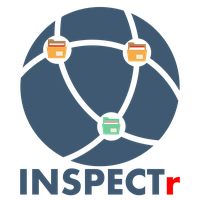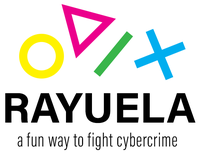Collaboration with sister projects

LOCARD
LOCARD is a project funded through the European Commission’s Horizon 2020 program, that aims to automate the collection of digital evidence in any electronic format and medium. Its goal is to provide a comprehensive management approach to handle digital evidence to be presented in a court of law, alleviating many issues of current art and practice. LOCARD aims to increase trust in the handling and processing of digital evidence and the management of chain of custody by providing transparency and using immutable chain of custody stored with blockchain technology.
LOCARD is a project funded through the European Commission’s Horizon 2020 program, that aims to automate the collection of digital evidence in any electronic format and medium. Its goal is to provide a comprehensive management approach to handle digital evidence to be presented in a court of law, alleviating many issues of current art and practice. LOCARD aims to increase trust in the handling and processing of digital evidence and the management of chain of custody by providing transparency and using immutable chain of custody stored with blockchain technology.
ROXANNE is in touch with LOCARD H2020 EU project, which shares a lot of similar requirements and challenges as targeted by ROXANNE. Specifically, ROXANNE aims to learn more about recent work published by the LOCARD project on “Large-scale analysis of grooming in modern social networks”. The paper is available on Arxiv, and will be soon published on https://www.journals.elsevier.com/expert-systems-with-applications.
FORMOBILE
An end-to-end forensic investigation chain for mobile devices, aims at developing a complete forensic investigation chain, targeting mobile devices. A result of the project should be a holistic view of all areas of mobile forensics, including fundamental rights, allowing continued research on the complete investigation chain. For more information, see the FORMOBILE website.
An end-to-end forensic investigation chain for mobile devices, aims at developing a complete forensic investigation chain, targeting mobile devices. A result of the project should be a holistic view of all areas of mobile forensics, including fundamental rights, allowing continued research on the complete investigation chain. For more information, see the FORMOBILE website.
CONNEXIONs
CONNEXIONs aims to develop and demonstrate next-generation detection, prediction, prevention, and investigation services. These services will be based on multidimensional integration and correlation of heterogeneous multimodal data, and delivery of pertinent information to various stakeholders in an interactive manner tailored to their needs, through augmented and virtual reality environments. The CONNEXIONs solution encompasses the entire lifecycle of law enforcement operations including a) pre-occurrence crime prediction and prevention b) during-occurrence LEA operations c) post-occurrence investigation, and crime-scene simulation and 3D reconstruction. CONNEXIONs will meaningfully enhance operational and (near) real-time situational awareness, through automated identification, interpretation, fusion and correlation of multiple heterogeneous big data sources, as well as their delivery via immersive solutions. CONNEXIONs will be validated in field tests and demonstrations in 3 operational use cases: a) counter-terrorism security in large scale public events b) human trafficking investigations and mitigation c) crime investigation and training through 3D scene reconstruction. For more information, see the CONNEXIONs website.
CONNEXIONs aims to develop and demonstrate next-generation detection, prediction, prevention, and investigation services. These services will be based on multidimensional integration and correlation of heterogeneous multimodal data, and delivery of pertinent information to various stakeholders in an interactive manner tailored to their needs, through augmented and virtual reality environments. The CONNEXIONs solution encompasses the entire lifecycle of law enforcement operations including a) pre-occurrence crime prediction and prevention b) during-occurrence LEA operations c) post-occurrence investigation, and crime-scene simulation and 3D reconstruction. CONNEXIONs will meaningfully enhance operational and (near) real-time situational awareness, through automated identification, interpretation, fusion and correlation of multiple heterogeneous big data sources, as well as their delivery via immersive solutions. CONNEXIONs will be validated in field tests and demonstrations in 3 operational use cases: a) counter-terrorism security in large scale public events b) human trafficking investigations and mitigation c) crime investigation and training through 3D scene reconstruction. For more information, see the CONNEXIONs website.
LEA Cluster
Recognising that our projects have common stakeholders and similar objectives in supporting law enforcement against organised crime and terrorism, we have formed a cluster with these objectives:
- To share knowledge in order to support law enforcement against money-laundering, cybercrime, organised crime and terrorism, for example, by webinars for the partners in the cluster.
- To leverage our dissemination activities by mentioning the projects in the cluster on our websites, inviting articles from the cluster projects in our newsletter.
- To ensure the coherence and complementarity of our recommendations to the EC, LEAs and other stakeholders, as far as possible.
- To explore a degree of interoperability or compatibility between our technical platforms, modules and/or services.
- To explore synergies, research opportunities and possible joint exploitation activities.
CC-DRIVER
Project Coordinator: David Wright
CC-DRIVER is a three-year, EU-funded project investigating the drivers of cybercrime and, especially, how young people can be turned away from cybercrime to use their talents in more socially productive ways. The €5 million project began in May 2020, has 13 partners from eight countries and is co-ordinated by Trilateral Research (UK). For more information, see the CC-DRIVER website.
Project Coordinator: David Wright
CC-DRIVER is a three-year, EU-funded project investigating the drivers of cybercrime and, especially, how young people can be turned away from cybercrime to use their talents in more socially productive ways. The €5 million project began in May 2020, has 13 partners from eight countries and is co-ordinated by Trilateral Research (UK). For more information, see the CC-DRIVER website.
COPKIT
Project Coordinator: Raquel Pastor
COPKIT is a three-year, EU-funded project that addresses the problem of analysing, preventing and investigating the use of ICTs by organised crime and terrorist groups. In this context, the project is developing a toolkit to support the Early Warning (EW)/Early Action (EA) methodology. The €5 million project began in June 2018, has 18 partners from 13 countries and is co-ordinated by Ingeniería de Sistemas para la Defensa de España (ISDEFE) (ES). For more information, see the COPKIT website.
Project Coordinator: Raquel Pastor
COPKIT is a three-year, EU-funded project that addresses the problem of analysing, preventing and investigating the use of ICTs by organised crime and terrorist groups. In this context, the project is developing a toolkit to support the Early Warning (EW)/Early Action (EA) methodology. The €5 million project began in June 2018, has 18 partners from 13 countries and is co-ordinated by Ingeniería de Sistemas para la Defensa de España (ISDEFE) (ES). For more information, see the COPKIT website.
DARLENE
Project Coordinator: Dr Dimitrios Tzovaras
DARLENE is a three-year project that will offer European law enforcement agencies an augmented reality ecosystem with powerful deep learning algorithms that will improve situational awareness and effectiveness in all security verticals. The €7 million project will begin in September 2020, has 15 partners from 10 countries and is co-ordinated by the Centre for Research and Technology Hellas (CERTH) (GR). For more information, see the DARLENE page on CORDIS.
Project Coordinator: Dr Dimitrios Tzovaras
DARLENE is a three-year project that will offer European law enforcement agencies an augmented reality ecosystem with powerful deep learning algorithms that will improve situational awareness and effectiveness in all security verticals. The €7 million project will begin in September 2020, has 15 partners from 10 countries and is co-ordinated by the Centre for Research and Technology Hellas (CERTH) (GR). For more information, see the DARLENE page on CORDIS.
INSPECTr
Scientific Coordinator: Dr Ray Genoe, University College Dublin
INSPECTr is a three-year project that will develop a shared intelligent platform and novel process for gathering, analysing, prioritising and presenting key data to help in the prediction, detection and management of crime in support of multiple agencies at the local, national and international level. The €7 million project began in September 2019, has 18 partners from 13 countries and is coordinated by University College Dublin (IE). For more information, see the INSPECTr website.
Scientific Coordinator: Dr Ray Genoe, University College Dublin
INSPECTr is a three-year project that will develop a shared intelligent platform and novel process for gathering, analysing, prioritising and presenting key data to help in the prediction, detection and management of crime in support of multiple agencies at the local, national and international level. The €7 million project began in September 2019, has 18 partners from 13 countries and is coordinated by University College Dublin (IE). For more information, see the INSPECTr website.
PREVISION
Project Coordinator: Dr Konstantinos Demestichas
PREVISION is a two-year, EU-funded project that aims to empower law enforcement agencies with tools and solutions to handle and capitalise on the massive heterogeneous data streams that must be processed during complex crime investigations and threat risk assessments. The €9 million project began in September 2019, has 28 partners from 13 countries and is co-ordinated by the Institute of Communication and Computer Systems (ICCS) (GR). For more information, see the PREVISION website.
Project Coordinator: Dr Konstantinos Demestichas
PREVISION is a two-year, EU-funded project that aims to empower law enforcement agencies with tools and solutions to handle and capitalise on the massive heterogeneous data streams that must be processed during complex crime investigations and threat risk assessments. The €9 million project began in September 2019, has 28 partners from 13 countries and is co-ordinated by the Institute of Communication and Computer Systems (ICCS) (GR). For more information, see the PREVISION website.
PROTAX
Project Coordinator: Prof Umut Turksen
PROTAX is a three-year, EU-funded project that aims to generate, in close co-operation with practitioners, policy guidelines and toolkits to harmonise the treatment of tax crime and enhance information sharing across different European jurisdictions. The €3 million project began in May 2018, has 9 partners from 6 countries and is co-ordinated by Coventry University (UK). For more information, see the PROTAX website.
Project Coordinator: Prof Umut Turksen
PROTAX is a three-year, EU-funded project that aims to generate, in close co-operation with practitioners, policy guidelines and toolkits to harmonise the treatment of tax crime and enhance information sharing across different European jurisdictions. The €3 million project began in May 2018, has 9 partners from 6 countries and is co-ordinated by Coventry University (UK). For more information, see the PROTAX website.
RAYUELA
Project Coordinator: Dr Gregorio López
The RAYUELA project is a three-year project with a budget of €5 million. The project will begin in October 2020, has 17 partners from 9 countries and is co-ordinated by Universidad Pontificia Comillas (ES). It will bring together experts from different areas of knowledge from all over Europe to develop an interactive story-like game that, on the one side, will allow minors to learn good practices on the use of the Internet and associated technology by playing, and, on the other side, will allow modelling, in a friendly and non-invasive manner, online habits and potential risk profiles related to cybersecurity and cybercriminality, providing Law Enforcement Agencies with scientifically sound foundations to define appropriate policies. For more information, see the RAYUELA page on CORDIS.
Project Coordinator: Dr Gregorio López
The RAYUELA project is a three-year project with a budget of €5 million. The project will begin in October 2020, has 17 partners from 9 countries and is co-ordinated by Universidad Pontificia Comillas (ES). It will bring together experts from different areas of knowledge from all over Europe to develop an interactive story-like game that, on the one side, will allow minors to learn good practices on the use of the Internet and associated technology by playing, and, on the other side, will allow modelling, in a friendly and non-invasive manner, online habits and potential risk profiles related to cybersecurity and cybercriminality, providing Law Enforcement Agencies with scientifically sound foundations to define appropriate policies. For more information, see the RAYUELA page on CORDIS.
ROXANNE
Project Coordinator: Dr Petr Motlicek
ROXANNE is a three-year project, with aim to develop a platform that will increase agencies’ capabilities via voice recognition, language and video technologies. The project will support LEA’s activities through multilanguage applications based on voice, text and face technologies. The €7 million project began in September 2019, has 24 partners from 16 countries and is co-ordinated by Idiap Research Institute (CH). For more information, see the ROXANNE website.
Project Coordinator: Dr Petr Motlicek
ROXANNE is a three-year project, with aim to develop a platform that will increase agencies’ capabilities via voice recognition, language and video technologies. The project will support LEA’s activities through multilanguage applications based on voice, text and face technologies. The €7 million project began in September 2019, has 24 partners from 16 countries and is co-ordinated by Idiap Research Institute (CH). For more information, see the ROXANNE website.
LOCARD
Project Coordinator: Dr Constantinos Patsakis
LOCARD is a project funded through the European Commission’s Horizon 2020 program. The three-year project (May 2019 - April 2022) will automate the collection of digital evidence in any electronic format and medium by providing a unique platform for exchanging this evidence. Its goal is to provide a comprehensive management approach to handle digital evidence to be presented in a court of law, alleviating many issues of current art and practice. LOCARD aims to increase trust in the handling and processing of digital evidence and the management of chain of custody by providing transparency and using immutable chain of custody stored with blockchain technology. For more information, see the LOCARD website.
Project Coordinator: Dr Constantinos Patsakis
LOCARD is a project funded through the European Commission’s Horizon 2020 program. The three-year project (May 2019 - April 2022) will automate the collection of digital evidence in any electronic format and medium by providing a unique platform for exchanging this evidence. Its goal is to provide a comprehensive management approach to handle digital evidence to be presented in a court of law, alleviating many issues of current art and practice. LOCARD aims to increase trust in the handling and processing of digital evidence and the management of chain of custody by providing transparency and using immutable chain of custody stored with blockchain technology. For more information, see the LOCARD website.










